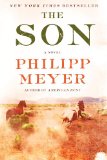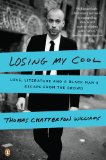Summary | Excerpt | Reviews | Beyond the book | Read-Alikes | Genres & Themes | Author Bio

A memoir of culture and history – of fathers and daughters, of two world wars and the passionate rebellions of the sixties. It is also about the mythology of place and the evolution of a sensibility: and about how literature can shape and even anticipate a life.
In this exquisitely
rendered memoir set on the high plains of Texas, Pulitzer Prize winner Gail
Caldwell transforms into art what it is like to come of age in a particular time
and place. A Strong West Wind begins in the 1950s in the wilds of the
Texas Panhandle – a place of both boredom and beauty, its flat horizons broken
only by oil derricks, grain elevators, and church steeples. Its story belongs to
a girl who grew up surrounded by dust storms and cattle ranches and summer
lightning, who took refuge from the vastness of the land and the ever-present
wind by retreating into books. What she found there, from renegade women to men
who lit out for the territory, turned out to offer a blueprint for her own
future. Caldwell would grow up to become a writer, but first she would have to
fall in love with a man who was every mother's nightmare, live through the
anguish and fire of the Vietnam years, and defy the father she adored, who had
served as a master sergeant in the Second World War.
A Strong West Wind is a memoir of culture and history–of fathers and
daughters, of two world wars and the passionate rebellions of the sixties. But
it is also about the mythology of place and the evolution of a sensibility:
about how literature can shape and even anticipate a life.
Caldwell possesses the extraordinary ability to illuminate the desires, stories,
and lives of ordinary people. Written with humanity, urgency, and beautiful
restraint, A Strong West Wind is a magical and unforgettable book,
destined to become an American classic.
Inspired by Thomas Clayton Wolfe's first novel Look Homeward, Angel (1929) Caldwell left her childhood home to find her destiny, having had an inkling of what that might be during a summer internship with the local newspaper, where she discovered "a work world where eccentrics reigned." In the context of her childhood growing up in the Texas Bible Belt it is apt that she's taken the title of her book from Exodus 1:19: And the Lord changed the wind to a very strong west wind, which caught up the locusts and carried them into the Red Sea...continued
Full Review
 (418 words)
(418 words)
(Reviewed by BookBrowse Review Team).
Gail Caldwell is the
chief book critic for The Boston Globe, where she has been a staff writer and
critic since 1985. In 2001, she was awarded the Pulitzer Prize for Distinguished
Criticism. She is also an avid rower. She lives in Cambridge, Massachusetts.
"I don't feel that novels change the world. I think novels change people's
hearts. People's hearts, one at a time, change the world." - Gail Caldwell.
Read an in-depth interview with
Gail Caldwell at BookBrowse.

If you liked A Strong West Wind, try these:

by Philipp Meyer
Published 2014
Part epic of Texas, part classic coming-of-age story, part unflinching portrait of the bloody price of power, The Son is an utterly transporting novel that maps the legacy of violence in the American West.

by Thomas Chatterton Williams
Published 2011
A pitch-perfect account of how hip-hop culture drew in the author and how his father drew him out again - with love, perseverance, and fifteen thousand books.